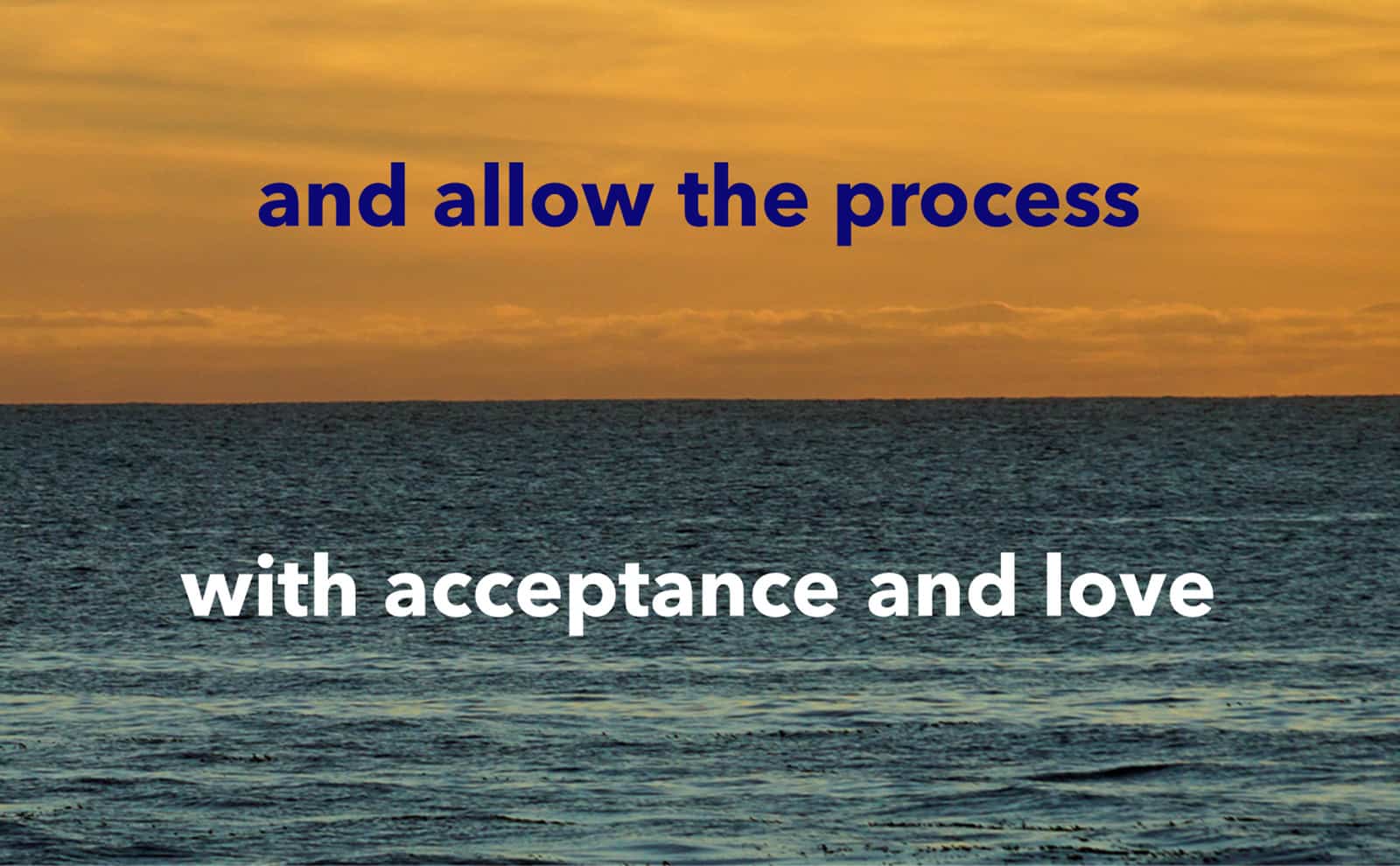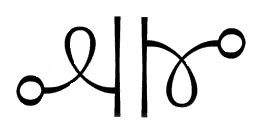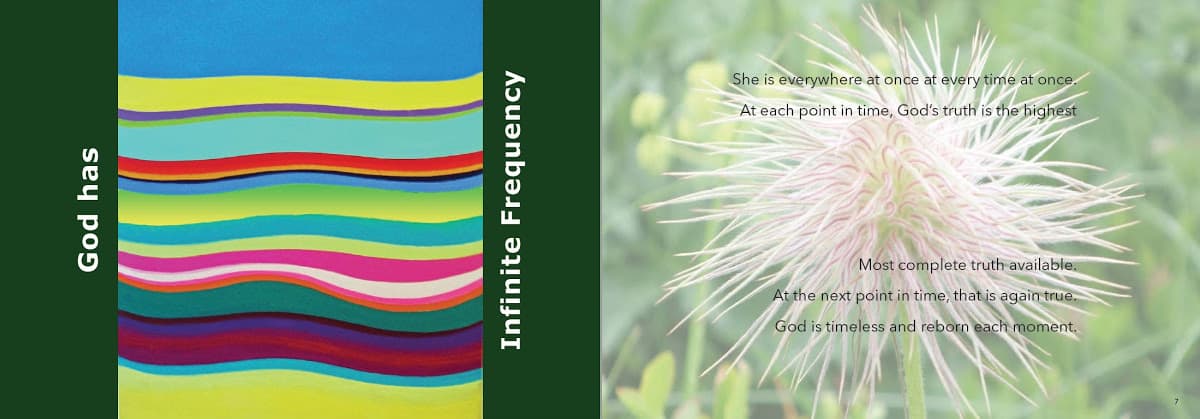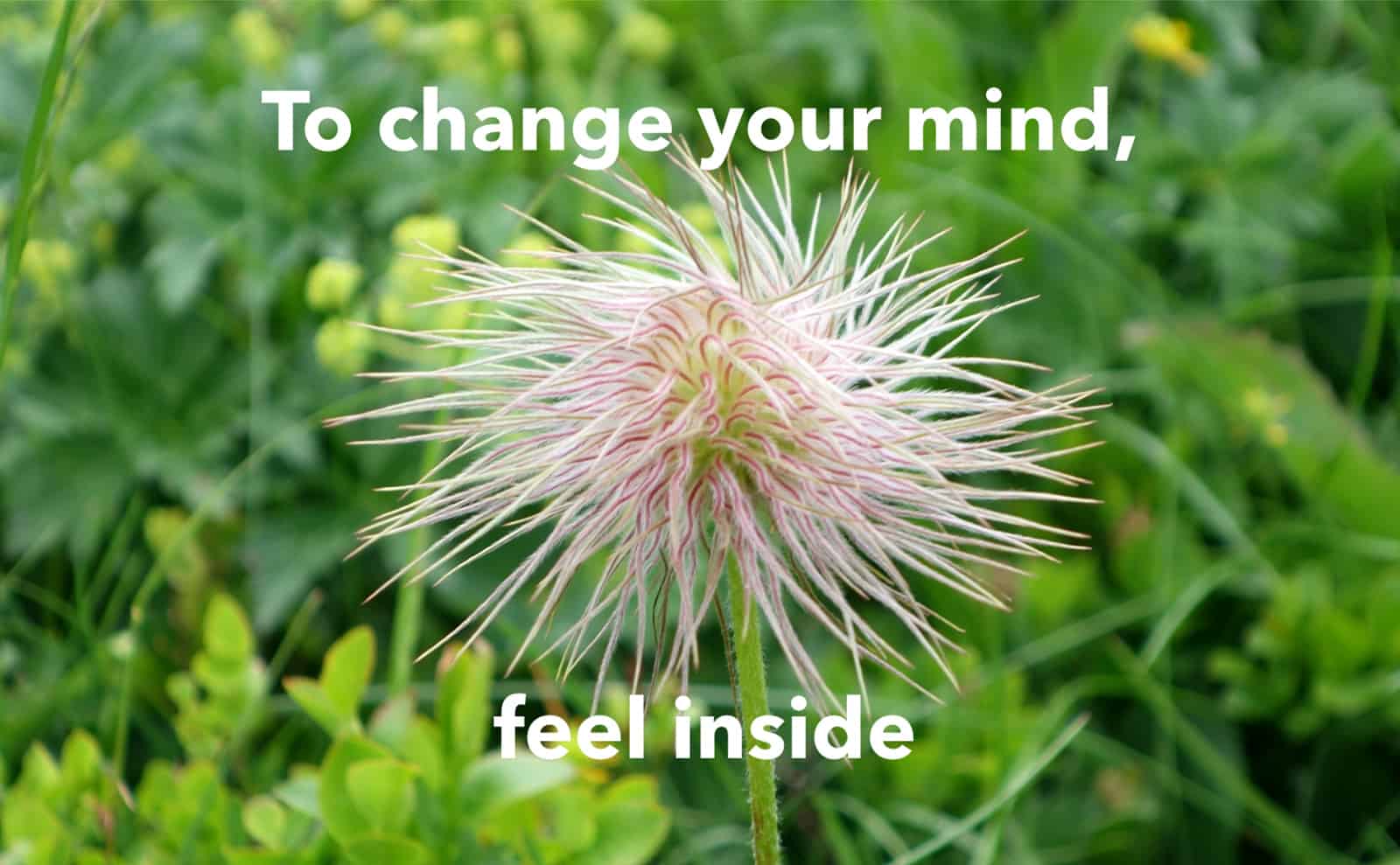
God has Infinite Frequency
Aphorisms for Our Fractured Age
Blending art and insight, beautifully crafted and printed, God has Infinite Frequency: Aphorisms for Our Fractured Age is penetrating, amusing, and sometimes provocative, as it takes us on a tour of many of our dearly held beliefs – challenging them, and giving us the precious opportunity to reconsider, feel, and to see things anew.
As our worlds break apart, and a new consciousness emerges, here is an invitation to explore, be inspired and reformulate. The experience of the book is multi-dimensional, artistic, and joyful, and one that touches the core of who we are. Its gentle whisper resonates in our hearts, and helps remind us, ground us, and open us to new ways of seeing and experiencing ourselves and the world. We are accompanied on a journey of re-creation, and as we take the journey, we find the destination is more of ourselves.
“What people are saying!”
“God has Infinite Frequency is a resource to use at any moment; in the calm, in the whirl, in the questioning, and especially in the upheavals of change. It provides the opportunity to “not know”, to “be still”, and to see the songs of colors, of shapes, of forms.”
Sharon Riegie Maynard, Radical Mystic Shawoman, Author and Founder of TAG, Galactic System
“…beautiful – something truly special… It stirs the soul and invites an opening to reflect on who we are and where we want to go.
Susan Stanton Rotman, spiritual teacher and life coach.
“…speaks to humanity’s deepest inner need for love, with an invitation to experience the Universal love existing within each of us, thereby unifying us. A beautiful and artful read.”
Lisa Tahir, LCSW Host of “All Things Therapy” Podcast and Member, U.S. Press Agency
“…the quintessential gift for every deep thinker and lover of beauty”
Suzanne Grenager, Author of Bare Naked at the Reality Dance
“…a small book with a great heart and a great brain…reminiscent of…Robert Pirsig’s Zen and the Art of Motorcycle Maintenance, The Complete Works of Carlos Castaneda, Dan Millman’s The Way of the Peaceful Warrior, Benjamin Hoff’s The Tao of Pooh, and John Lennon’s, Skywriting by Word of Mouth”
Read the full review here

From the Publisher
As a book, God Has Infinite Frequency: Aphorisms for Our Fractured Age is unique. But it builds on traditions of works that enrich us through our enlivened spiritual response to them. The Yoga Aphorisms of Patanjali, and the Right Use Of Will by Ceanne DeRohan are its antecedents and inspiration.
In reading God Has Infinite Frequency we experience a resonance in the heart – a feeling of connection, an ah ha! moment. Through the artwork, married with the mental and emotional expressions, we are led towards an unfolding of a new perspective, and a renewed connection with ourselves and the Universe.
As we release our samskaras, karmic imprints, our vibrational presence is increased. Doors are opened, and new connections, both within us and between us and other people are possible. We activate more space in our minds and hearts to think and feel and to create from our own authentic selves.
About the Author
The author, Jonathan Masters, is a meditation teacher and business consultant specializing in international partnerships and technology development. Read more...

About the Artist
"We only see the top of the iceberg. What lurks beneath, are stereotypes highly steeped in tradition, culture and religious beliefs. These stereotypes are holding women back from Read more...

About the Artist
"What excites me is color and paint and the surprises that happen in the process…Standing before a blank canvas surrounded by my tools and colors, I begin to journey… Read more...

Read review by Lee A. Gooden
Over the years, I’ve read more than my share of so-called new age/self-help books that incorporate, out of context, psychological; religious; philosophical, and scientific terms and concepts. Authors of these books, know that certain words and ideas give their work a sense of validation and, albeit, a false, all-knowing deep profundity. Such authors understand that the average reader’s knowledge of science and the esoteric is limited. Living in an era of “fake news” and “alt facts” why would anyone bother to fact-check or research? Thus, charlatans have carte blanche to haphazardly throw terms and ideas like cow chips at readers to see what sticks.
Jonathan Masters’ book, God Has Infinite Frequency: Aphorisms for Our Fractured Age, could have easily fallen into the above category. It does not. Masters does not allow his readers to be bamboozled by their very human want and need for blaming their misfortune and sadness on a higher power. He writes, “These beliefs [of an all-seeing, all-knowing higher power’s responsibility for our misfortune] are tools that can disconnect us from personal responsibility and power; disconnect us from feeling and from ourselves. They permeate everything we do, how we are, how we think, how we act. But reference to an external power is different from the experience of God; the experience of a living, integrated truth; harmony with all it is. Heart based, and with extreme appreciation for one’s self and creation.”
While reading Masters’ work, I also got sucked into a book called The Last Days of John Lennon by James Patterson. Not a Patterson fan, nevertheless, Lennon has been my hero since I was ten years old, although, my hero worship of Lennon had lessened over the years. Reading about Lennon during the anniversary of his death, put me in a despondent mood. Before re-reading Masters’ book and writing this review, I had to finish the Lennon book, and I had to process my myriad of conflicting and contrasting feelings. At the conclusion of the biography, I could not get pass my initial gloom. I picked up God Has Infinite Frequency and read it from the beginning again, slowly. I started to make connections with Masters’ words and Lennon’s lyrics, specifically to his song: “God”
“God is a concept by which we measure our pain.”
I didn’t consider his lyrics to be dark or despairing. Processing both Masters and Lennon together, I remembered that we are all human and flawed. But that’s okay. Masters’ work is the other side of the coin of Lennon, the brighter side. However, after Lennon exorcised his demons through the rest of the song, he did find God again, the kind that God Has Infinite Frequency understands. The last lines of Lennon’s song are:
“I Just believe in me…Yoko and me.”
Lennon’s song, his whole oeuvre, is a prayer to his humanity’s divinity, it’s sacredness and Godhood.
God Has Infinite Frequency is a tribute to the multi-faceted deity, that is grandly us-you and me. Masters, does what Walt Whitman said to do in the first stanza of “Song of Myself”, the beginnings of his magnum opus, “The Leaves of Grass”:
I celebrate myself, and sing myself,
And what I assume, you shall assume
For every atom belonging to me as good belongs to you.
In celebration of ourselves, we smile and embrace one simple act, before the beginnings of a kaddish to unlimited potential of humanity. Masters writes,”It is often hard to recognize that our primary relationship is with ourselves. There are so many pieces, reflecting from so many different directions. That is why self- discovery often starts with closing our eyes.”
There is so much in this aphorism, lyric, koan, prayer, whatever you want to call it- to invoke that kernel or essence of what is humane in the word humanity. Masters’ God Has Infinite Frequency would have been...well, no pun intended, a Godsend to me in my early twenties, when I went through a terrible break-up with the mother of my first child, and whom I thought was the love of my life. I was not mature nor experienced enough to handle the destruction of the fragile fledgling universe I built with, and mostly around this person. Physically, emotionally and mentally, I was brought down to my lowest denominator. All that I thought was right and wrong, my ethics, my values, a world of black and white, were tainted by grey stains of self-fulfilled guilt and unrealistic expectations. I was not seasoned enough to rise above my predicament. My indignation only deepened my descent into the mire of pain and jadedness. I lived and loved by example. Raised by a strong single mom, I went to great polar lengths not to be like my abusive father. I vowed in words and proved by my actions that my children would always come first. More than betraying me in the arms of another man, my partner made me a see-you-on-the-weekend-father, which to me, was the epitome of failure.
To reboot myself, twenty-something me voraciously devoured works of literature, philosophy and religion...unaware that I was looking for meaning and validation for my own personal human condition. I wish that God Has Infinite Frequency existed then. Masters’ work is reminiscent of those books that I read in my early twenties to rebuild myself, including, but not limited to, Robert Prisig’s books Zen and the Art of Motorcycles Maintenance and Lila, The Complete Works of Carlos Castaneda, Dan Millman’s The Way of the Peaceful Warrior, Benjamin Hoff’s The Tao of Pooh and the Te of Piglet, and John Lennon’s posthumous book, Skywriting by Word of Mouth. Reading these books helped me redefine myself, which is also aptly described in Masters’ work. He writes, “The basis for peace, harmony and truth is that we understand and experience ourselves as infinitely valuable divine beings.”
If only I read the above words when I was twenty-one. Upon re-reading God Has Infinite Frequency, and with hindsight brought on by traumatic conditioning (I’d like to slap the person the came up with the saying, ‘that which doesn’t kill you, makes you stronger’), I’ve come to the realization that even if I had read those words at twenty-one, I may have had not been ready for them. My pain and guilt might’ve clouded my reason and closed my heart. Masters’ book contains a section called: “The Closest Thing to the Opposite of God is Guilt” He writes, “Guilt has no feelings, fear or remorse. Guilt will drive you into the ground until there is nothing left, and then tell you it was your fault: you should have done better. You cannot argue with, reason with, make peace with or accommodate guilt. You cannot go past your guilt, either, except temporarily.”
Maybe fifty-three-year-old me shouldn’t be so hard on twenty-one-year-old me. After all, my young incarnation was nothing but raw nerve, muscle and in love with being in love, desperately seeking it unconditionally. All I had for examples of ‘true love’ were my gleanings from pop-culture, movies, books and songs. I plodded through and I plodded on. I continue to plod, but I plod in celebration of being alive. I plod with joy. Masters writes, “No part is left out – our pleasure and pain, our hopes and dreams, our successes and failures...Joy comprehends the difficulties and suffering of the world, and expands to others to meet them in the heart. Joy is for and from all the universe and connects us to everything.”
God Has Infinite Frequency is a small book with a great heart and a great brain. Readers will burn through it on their first read, perhaps finding themselves disappointed the first time around. That is because many people equate quality with quantity. Masters’ book appears to be a scant seventy-seven pages, interspersed with various photographs, drawings and paintings that seem unrelated. His art selection might even act as visual binaural beats or tones upon some readers, slowing them down, altering their thinking and emotions. Do not think for a moment, that Jonathan Masters, a professional consultant and teacher of meditation, under the mentoring of Maharishi Mahesh Yogi (another John Lennon Jungian synchronicity connection), inventor, businessman and musician-picked the photos, painting and pictures, etc. (as well as the artists and his other collaborators) for his book at random. Everything in God Has Infinite Frequency is designed with specificity. The whole time while reading and re-reading his works, I felt a kind, purposeful warm and humble smile emanating from the pages. Masters explains it best in the final section of the book. He writes, “... we belong to the vast totality – our small individualities like so many spots on the leopard, vanishing in the grass, hidden in the Savannah on Earth, rounding the Milky Way, in our tiny corner of space – and an integral part of the whole cosmos.”
-Lee A. Gooden



